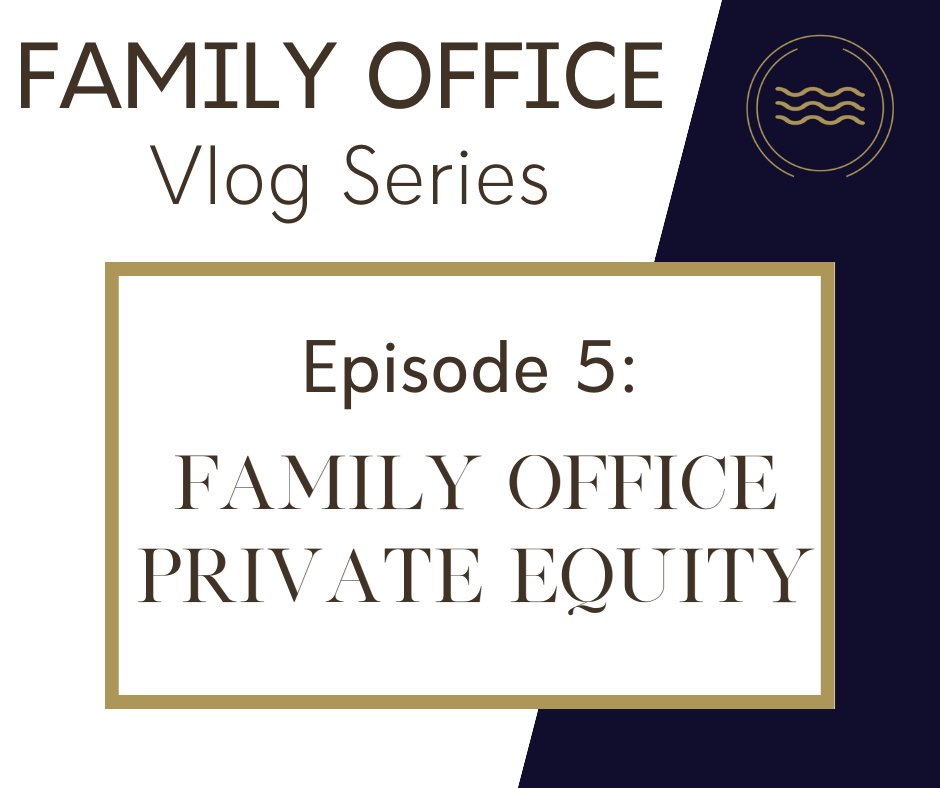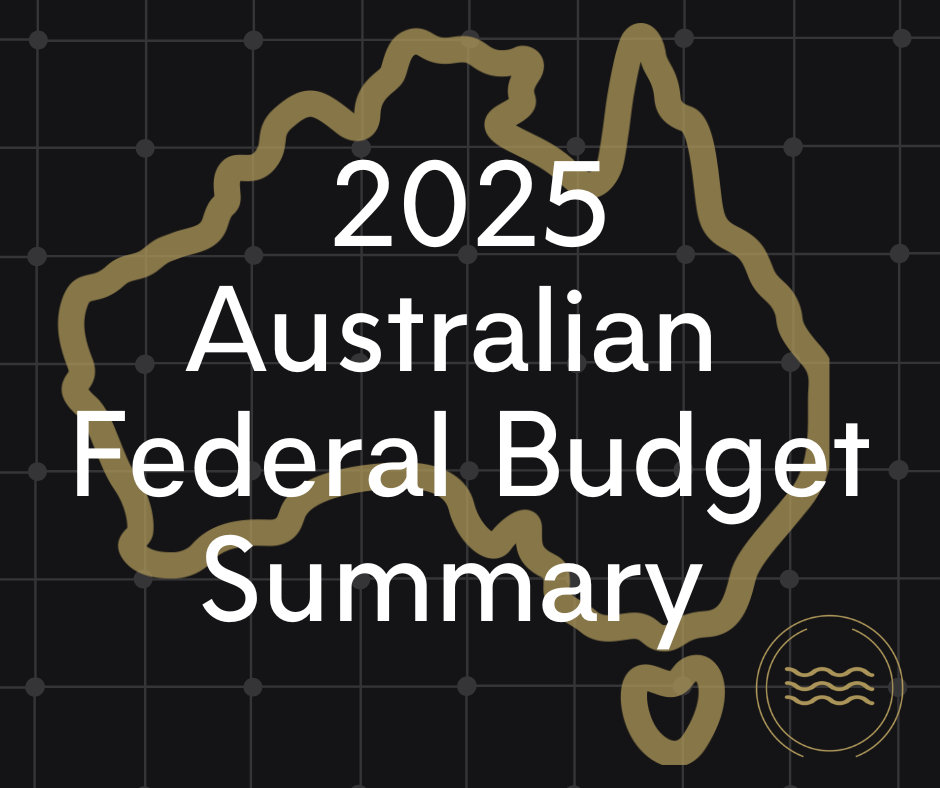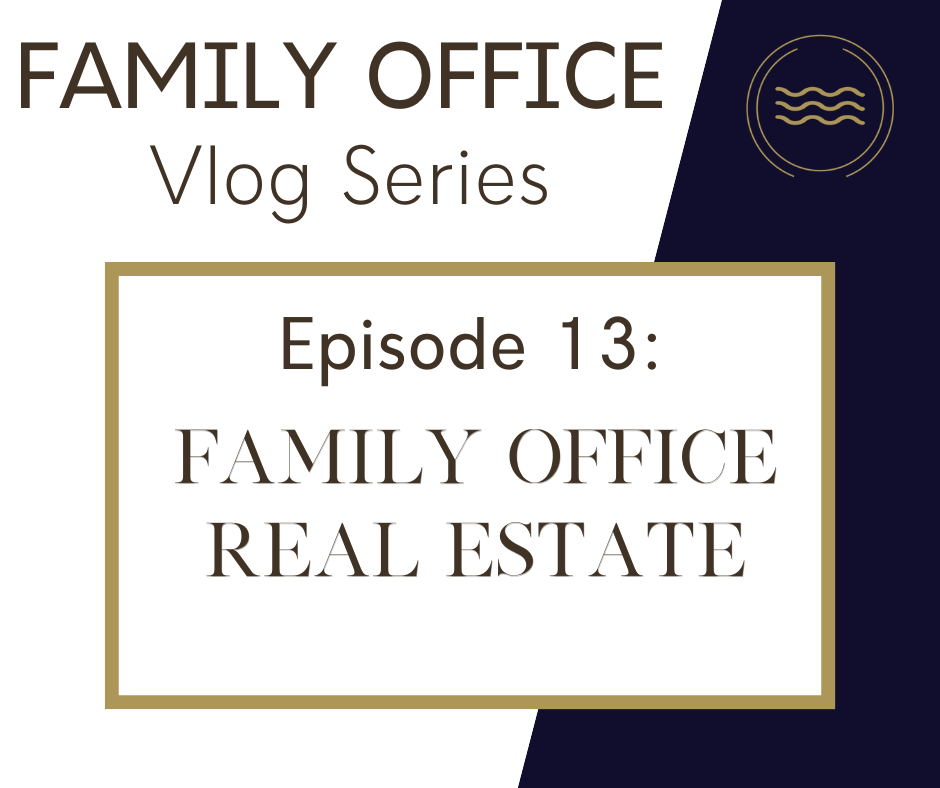
Family Office Vlog Series: Ep. 5 – Family Office Private Equity
In our fifth episode of the Family Office Vlog Series, Asena CEO Peter Harper talks about the cross-section of Family Offices and Private Equity.
Transcript:
Peter Harper: Peter Harper, managing director and CEO of the Asena Family Office. For those of you who are not familiar with the business, we are a multi-family office that advises foreign family offices and founders on U.S. direct investments, and mergers and acquisitions.
Peter Harper: So guys, today I wanted to touch on the cross-section of family offices and private equity. Right, so I think for people that aren’t familiar with the two and hear about, you know, this idea of direct investing, you know, it can be a little confusing, right? So, you know, when we talk about direct investing versus indirect investing, we’re talking about when an investor invests directly into an asset. So, if it’s a private company or public company, they’re buying the shares. If it’s a piece of real estate – maybe they’re buying a fractional piece of the real estate or the structure – the direct structure that owns the real estate. Indirect is when they’re allocating, when you’re allocating via a fund, right? You might be investing into a basket of assets, right?
Peter Harper: So, over the last 20 or 30 years, there has been a massive uplift in direct investment, and that has been largely attributed to the challenges that, you know, larger firms or money managers have had with overcharging on fees or this notion that an investor is charging, you know, fees on fees which a lot of folks are still dealing with today, right? If you’re investing into a fund and then the funds allocating into some other form of investment, there can be multiple layers of fees, right, and it can be very difficult for an individual investor to actually understand what is the return I’m receiving net of fees, right, and so the more sophisticated the investor, so, you know, with family offices you’re talking very sophisticated investors; people have had large liquidity events, major capital exits, now have the ability to set up their own private investment office effectively or to a team of investment personnel to run their private investment office.That’s one of the things they look for. They look, okay, how do we, if we’ve got really smart people on a team, how do we reduce the layers so we get closer to the source, right? Surely it’s the same investment product, and we’re going to get a better return if we’ve got less people trying to pig out on the opportunity, right? So, that is the thematic. As a result of that, you know, as more sophisticated folks have seen family offices as a way to be more involved in the investment process, so right, they look at large institutional investors and say, okay, we don’t think what you’re doing is absolutely that crash- hot, we think we can find good deals, underwrite them, and invest ourselves plus we don’t have to pay all these bozos a bunch of fees. There has been a massive amount of capital over the last, you know, 20 to 30 years flow into family offices and, as a result of that, private equity, deals that would have been holistically the domain of private equity have started to see more competition from family offices.
Peter Harper: Now there is still a mutually exclusive framework by which private equity firms and family offices, you know, invest together, right, because a lot of family offices with the world’s best managers, they’re investing in their funds because they want to get access; the best managers are crushing it, so okay, we’re still going to give you money, but a lot of them do that on the basis they get this concept of a co-invest; okay I’ll invest in your fund but you’ve got to also let me side-by-side invest in some of the deals on a reduced fee basis in some of the deals you see, right, but there will be certain sections where, you know, where there are families that are effectively, you know, effectively going, you know, side-by-side on deals like, I think I one day go, 20-30 years ago, with a guy like Elon Musk who’s extended his years on other, you know, deals like Tesla and SpaceX; being able to be deploying to a deal like Twitter, right, and would that have just been the domain historically solely of private equity? Probably, right? So, the, you know, there is this dynamic where the two kind of, I think they’re found symbiosis, right? There’s a symbiotic relationship between private equity and family offices, but there are moments where they are competitive, right? I think family offices are still heavily major investors into private equity, but the dynamics have shifted. Historically, they invested because they had no access, right? Now they invest because they say, hey, we’re going to give you this money, but we do have access, and, by the way, if you don’t also give us co-investment opportunities, we won’t come back, right?
Peter Harper: So, I know we’ve jumped ahead a bit, but just to recap, we talk about this in each video; you know, for those of you who are not familiar with what a family office is, in the U.S., there’s an SSC definition there’s a financial service definition of what a family office is. Everywhere else in the world – that’s not necessarily the case, but a family office is really the private investment vehicle for a family of material wealth. In some cases, it’s purely financially driven; in other cases, there’s a lot of operational infrastructure behind the scenes to support all other aspects of the family – whether it’s, you know, shared services, asset management – when I say asset management I mean private asset management like boats, planes, you know, etc, and then all, any other need of the family that’s considered important.
Peter Harper: One thing that really does tie and differentiate a family office from a family business is where they have really thought through the legacy aspects of what it is they’re doing – okay, how do we make the business stick around for multiple generations; for three years; for more than three years; like 100 years, like if you get a 100-year plan, how do we execute on that? Well, the main way that a family office executes on that is they need to make sure all family members believe in the family vision, buy into it, and are good representatives of the family vision and values.
Peter Harper: This, you know, this kind of really leads into all of, you know, what the industry and the challenges that kind of, known challenges of dealing with a family office, with a lot of family offices, a lot of people, what can happen is they have a large ex, they go, oh I want a family office because they’re cool like you’ve made it when you’ve had a family office. The challenge with that is that you have a lot of people that might be very sophisticated from a business perspective, but they go through this and set up a family office, and they don’t have the right framework, and they torch a bunch of cash up front, right, because there is no point setting up a family office if you really don’t care about the legacy aspects, right, if you don’t, if you aren’t bought into the vision that you need to keep your wealth around for multiple generations, right, and that, when we talk about organizational structure in the context of family offices, we actually mean that it’s setting up a family office organizational infrastructure and then ensuring that everyone follows it for multiple generations, like they’re just not like, okay the patriarch’s dead, let’s dismantle this stuff, the people, the family, needs to believe it and they need to follow it.
Peter Harper: You know, we think that the future is bright for family offices. We don’t see that this is a trend; like a decade ago, it was a trend. We don’t; it’s not a trend. This is, people understand that if you really want to keep money together for a long period of time, you need to have strong systems, and people need to believe in those, you know, in their purpose, right, and if you don’t do that, you’re not going to be successful.
Peter Harper: Final sort of things, you know, I wanted to talk about was, you know, what is the, you know, what is the attraction; what are the attractions between, you know, family offices and their interplay with private equity. I think probably 10, 15 years ago, there was private equity relatively concern, right, because they would have seen larger families starting to show up and compete on deals. If the family wasn’t as locked down as far as their system, maybe they’re a bit looser on price, right, so there’s more competition in the market with people that may not as be as sophisticated when it comes to deals, sometimes that’s good, sometimes that’s bad. It’s normally, it’s normally tough in a bull market, maybe it’s better now, but I think that now, the two, family offices and private equity, have really found that they’ve got a symbiotic relationship, right? They understand the needs of each other, and they’re focused around it.
Peter Harper: So you know, the one, you know, one big thing that I think that people when I hear people talk about this and they really don’t, they really don’t matter, they understand conceptually okay, we do this, we go direct, we do all this stuff, theoretically there are less fees, but unless they’ve actually run a funds management business or an investment management business where they have gone through the rigor of underwriting a lot of deals in various environments, then you know, they may be better regardless of the size just investing in a fund right, because it it’s a huge amount of work; it’s a huge undertaking, and really what you’re doing if you’re saying you want to build the infrastructure around a direct investment house within a family office is you’re saying you want to build a financial services business, right, and I don’t think that’s what a lot of folks have when they’re thinking through the establishment of a family office. But listen, if you can do it and you can do it well, there are massive benefits, right? You’re getting access to better flows, you’re getting access to better information, you’re co-investing side by side, and you know, the only other alternative to all that is if, hey, you don’t want to invest by funds, you don’t want to run your own directs, is you partner up with a firm like the Asena Family Office who is fractional, right, and what we focus on is a cohort; very sophisticated investors that want to invest side by side directly with the support of a fractional family office like our, like us, to make direct investments together, right? So it’s, you’re not doing it on your own, you’re doing it with a cohort, but you’re not just throwing into a fund and hoping that the managers got it right.
Peter Harper: Alright guys, peace.
If you would like more information about Family Office Private Equity, reach out via the Contact Us section to the right.



